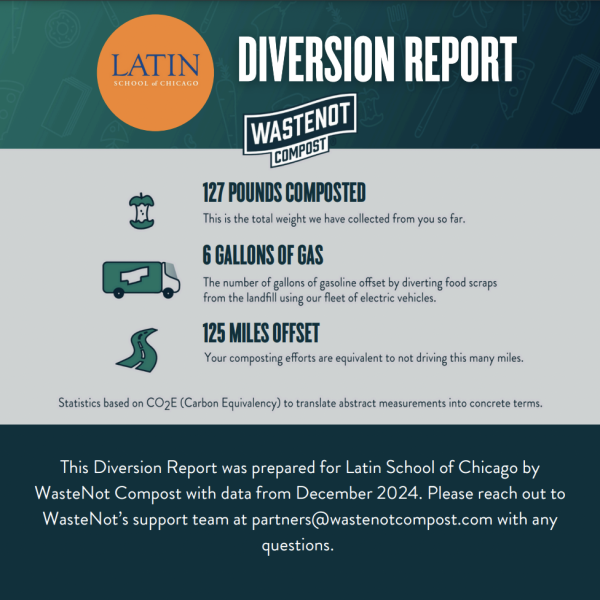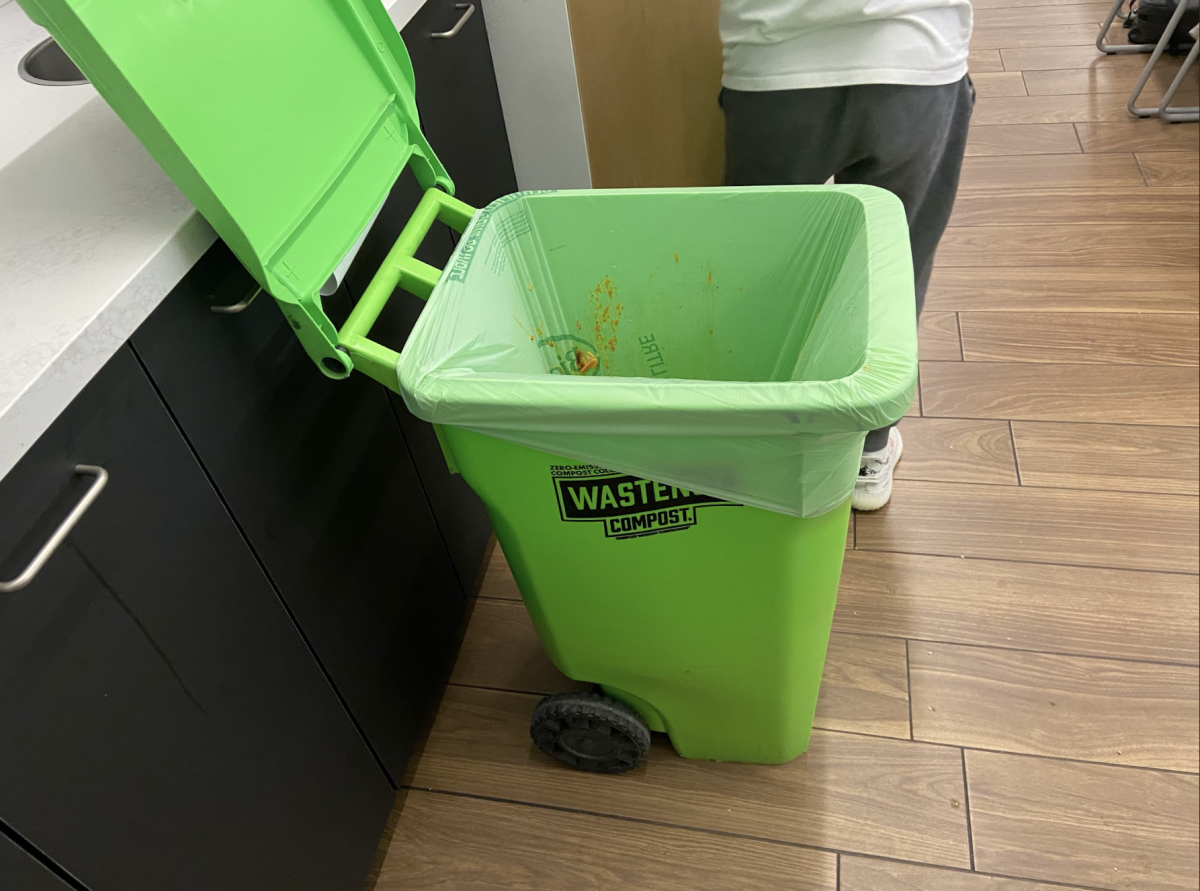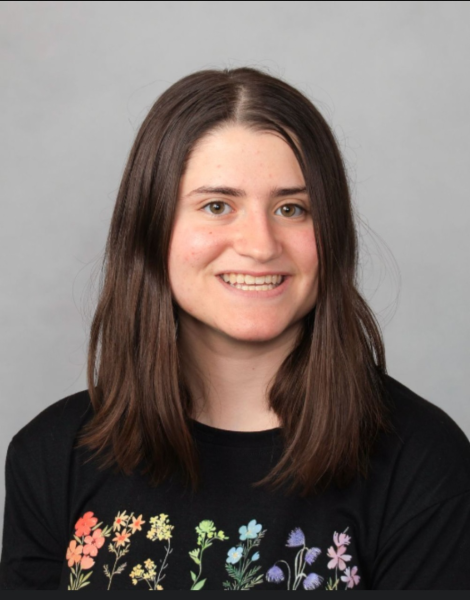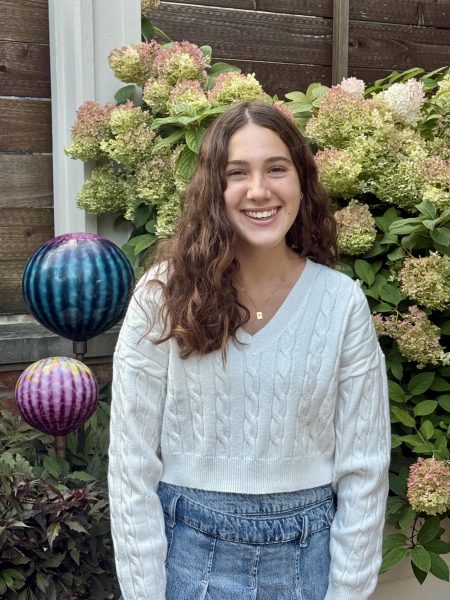Latin’s Green Club piloted WasteNot Compost bins on December 10 and 11 in the Learning Commons as part of the club’s mission to reduce the school’s carbon footprint. Latin’s community composted a total of 127 pounds of food waste, offsetting carbon emissions equivalent to six gallons of gas, or 125 miles driven, according to a report by WasteNot.
Working with WasteNot, a Chicago composting service, Latin was able to integrate composting without facing the difficulties of processing waste independently. Students and faculty disposed of their food in compost bins, which a WasteNot vehicle subsequently picked up for further treatment.

After the success of the two-day pilot, Green Club is hopeful to implement WasteNot at Latin long-term, although ongoing budgeting will determine whether a permanent shift is feasible.
The motivation to pilot WasteNot first came from junior and Green Club co-head Miles Stagman, who discovered WasteNot at a farmers market close to school. “They were introducing this concept of composting in a large industrial style, and it kind of allowed me to realize this is something that I could do at school,” he said.
The industrial scale that drew Miles’s interest is one of WasteNot’s signature features. Working at sites ranging from individual homes to large corporations, WasteNot aims to streamline the composting process, providing everything from collection bins to eco-friendly waste transportation in their electric vans.
Miles’s discovery of WasteNot helped Green Club pilot their long-time goal of composting at Latin, motivated by a concern for food waste. “Just seeing how much waste we have every day, there’s so much that gets thrown out,” senior and Green Club co-head Jackson Darke said.
Excess waste is an issue beyond Latin as well: Over one-third of all edible food in America winds up discarded. This waste goes on to contribute to numerous climate concerns, such as accounting for about 6%-8% of all carbon emissions.
WasteNot representative Tommy Vaughan, who worked with Latin throughout the composting process, elaborated on the science behind food waste’s environmental effect. “When food waste gets sent to the landfills, it’s sent to an anaerobic environment, which means without oxygen,” he said. “When food waste is in an environment without oxygen, it rots and releases methane, which is a really harmful natural gas.”
Composting helps lower the amount of greenhouse gases from food waste by providing an oxygen-rich environment and trapping carbon in soil. Through this effect, it fights against processes like climate change, all while promoting biodiversity and soil health.
These manifold positive effects motivated the Green Club to look into composting for Latin. Then, after Miles found WasteNot, he pitched it to fellow Green Club co-heads and garnered support. In particular, Jackson’s earlier experience gave him confidence in the WasteNot program. His family had previously started a composting program in their neighborhood and found WasteNot a manageable alternative to processing their own food waste. “All of our neighbors now use WasteNot, so I know it’s a reliable company,” he said.
After consulting with peers, the project of implementing WasteNot could commence, with Director of Student Life and Green Club adviser Tim Cronister providing early faculty encouragement. “I think [composting is] something that we have to do as a community,” he said.
Adviser support was vital in making the project a reality. “Mr. Cronister actually really helped with reaching out and talking to the administration,” Miles said.
Other adults were also paramount to the project. “[Head of School Thomas Hagerman] gave me the encouragement to start this interaction with WasteNot,” Miles added.
Throughout the implementation process, WasteNot was eager to work with Latin. Mr. Vaughan said, “Our founder started the company when he was in high school, so it’s always been part of our mission to engage young people who are passionate about the environment and sustainability.”
Over the 2024 spring and fall semesters, Green Club consulted Latin’s administration, HandCut Foods, WasteNot executives, and Latin’s operations team to implement the project. Although this collaboration was challenging, Green Club persevered and debuted the compost bins before winter break.
Miles said, “I have not only learned a lot about [composting] but also how to meet with the heads of organizations and how to provide the impetus for a project to happen.”
Mr. Cronister said he was very pleased with the leadership that students took on. “Miles having the initiative, and facing the roadblocks along the way, I think that’s magical,” he said.
After the pilot, many community members were equally enthusiastic about the new compost bins. “I think it was good that we were helping the environment and conserving our energy,” freshman Claire Horwitz said. “I hope we can do it again.”
Miles said he particularly appreciated his peers’ encouragement. “People were so supportive, and everybody came down to the bin and dumped their food,” he said. “People smiled and were happy that they were able to help [reduce carbon emissions].”



















































